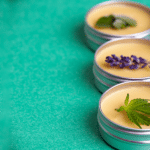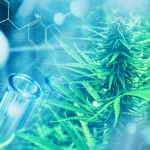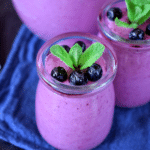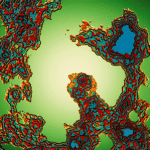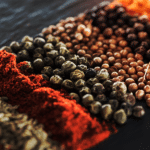It was a morning like any other when a jovial ping announced the arrival of my ‘all-things-cannabinoid’ daily news feed. I was about to press the delete button, when a headline caught my eye: “Creative Ticking Introduces Cannabidiol to Product Line of Fabrics Used in Ticking, Pillows and Pillow Cases.”
Ok, so I had no idea what ‘ticking’ was (I now know it’s the hardy material used to cover mattresses). However, CBD in pillows and pillowcases did shake me out of my morning slumber. Which is somewhat ironic as CBD-infused pillows are marketed as aiding a good night’s sleep.
Barely stifling my mirth, my new ‘CBD silly season’ discovery was swiftly shared on Twitter with the hashtag: #stopthecbdmadness. But it also got me thinking: Are all these bandwagonesque additions to the exploding CBD market ultimately taking away from the compound’s credibility?
I joined the world of CBD as a ‘cannabis naive’ blogger 3 years ago. Whenever I told anyone what I did for a living, I was mostly met with blank glances. Fast forward to 2019 and CBD has gone mega-global.
Thanks to a plethora of ‘CBD Cured My X’ news stories and word-of-mouth anecdotal accounts, CBD has become the ultimate nutraceutical disruptor to the healthcare industry – an over-the-counter dietary supplement that can seemingly alleviate a host of symptoms with few, if any, apparent side effects.
With current market predictions estimating CBD sales at over $20 billion in the U.S. alone, it’s no wonder other business sectors want to get in on the act. The food and beverage market were the first to come on board, followed by cosmetics and beauty. But it’s the addition of CBD to textiles and clothing that has got industry insiders scratching their heads (CBD scalp-soothing serum, anyone?).
CBD Sports Wear
Taking CBD oil before or after a workout is a fitness trend of the moment. Whether it actually speeds recovery between training sessions has yet to be proven in a lab, but many in the active sports community swear by it.
How the transition was made from using CBD as a fitness supplement to coating sports bras and leggings with the cannabinoid is a conversation I would love to have been party to. But that’s just what Acabada, a New York based women’s activewear, has done.
Acabada CEO Seth Baum explains: “While typical CBD products such as tinctures and edibles are growing exponentially in popularity, we began to envision a product that addressed health and wellness through a different lens. By physically infusing CBD into our garments, our product lives at the intersection of fashion, fitness, and wellness.”
Through microencapsulation, up to 25 grams of CBD is infused into sportswear including leggings, jumpsuits, shrugs, and yes, sports bras. Skin friction and muscle movement is said to cause the CBD to be released, whereby it is absorbed through the skin. Acabada claims that the garments continue to contain CBD for up to 40 washes, after which they can be used simply as activewear, or returned for upcycling.
More concerning though is the company’s assertion that by wearing the Acabada range, “recovery starts from the moment you get dressed by helping to fight soreness and promote healing before the first squat, lunge or crunch.” Words carefully chosen to be medical claim-free, but the intention is clear: Wear our clothes and your muscles won’t ache.
CBD Hair & Beauty Products
Topical use of CBD oil through CBD balms, lotions and creams is no great novelty in the world of CBD products. Research shows that CBD’s anti-inflammatory and immunoregulating action can penetrate through the skin when applied topically. And it’s not a stretch of the imagination to consider that CBD might make a worthy therapeutic addition to skincare products for inflamed or difficult to treat skin conditions like acne.
However, when it comes to adding CBD for hair products, the evidence-based jury is definitely out. If we were talking about products to calm an irritated scalp, logic might suggest that CBD could be of benefit. But CBD beard oil or CBD hair detangler? Seriously? In fact, for hair products, there appears to be no limit to CBD’s superpowers – including getting over a bad haircut.
CBD-Infused Coffee & Alcohol
The food and beverage industries are certainly not exempt from CBD absurdity. CBD infused coffee is often marketed as a way to avoid caffeine jitters. Indeed, Project CBD’s Adrian Devitt-Lee describes how caffeine and cannabinoids might actually have opposing effects on the body. Rather than CBD countering caffeine’s negative effects, coffee is more likely to override the relaxing, anti-inflammatory, and endocannabinoid-boosting effects of CBD.
And don’t get me started on CBD infused alcoholic drinks. One could argue that adding a medicinal compound like CBD to an alcoholic beverage borders on the irresponsible. It might actually encourage people to drink.
CBD may well be the most sought after ingredient for any cocktail mixologist worth their salt, but when you consider the damage alcohol causes to the body, not least the liver, I personally believe it should never be mentioned in the same breath as CBD.
The cynics and hardened drinkers amongst us might argue that since alcohol damages the liver and CBD may protect the liver, surely they are a match made in heaven. But as far as I know, there are no other alcoholic drinks on the market containing a star ingredient proven in the lab to limit damage caused by alcohol. And for ethical reasons, maybe that’s the way it should stay.
The truth is, the CBD horse has well and truly bolted. Perhaps the only hope lies in the ability of saavy consumers to see through the marketing smoke and mirrors, and decide for themselves whether to spend their hard earned cash on a CBD impregnated mattress, CBD infused rum, or a pair of CBD socks.
Mary Biles, a UK-based journalist, educator, and Project CBD contributing writer, is the author of The CBD Book (Harper Collins, UK). © Copyright, Project CBD. May not be reprinted without permission.



